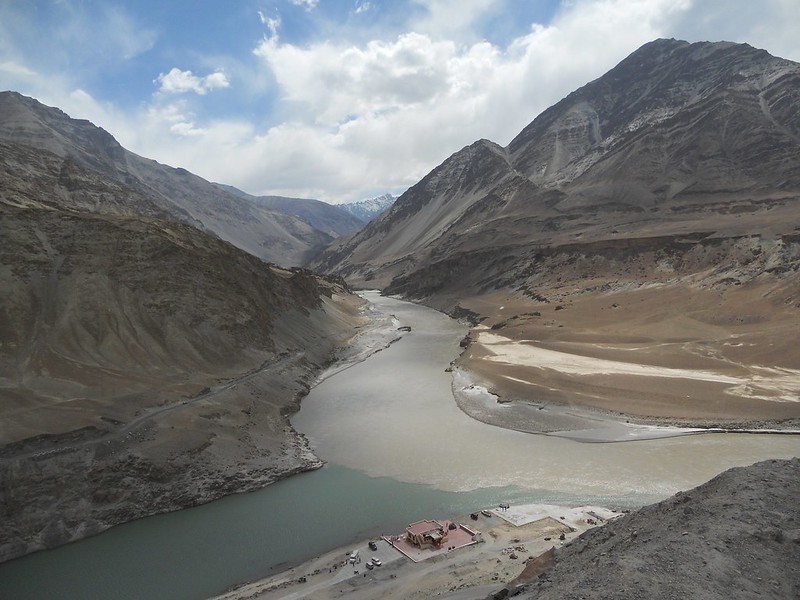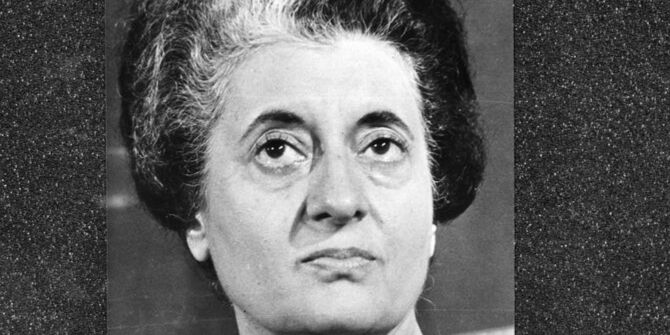A vote in the United Nations’ Security Council last week recognised the United Nations’ formal presence in Afghanistan but avoided using the word Taliban. This compromise was the latest manifestation of the deep unease and confusion amongst international actors forced to reckon with the contemporary rise of religion in world politics. Shweta Singh calls attention to theoretical and strategic tropes tied to Enlightenment thinking and the Westphalian state system that, she argues, are similarly hampering India’s foreign-policy efforts towards the current reality in Afghanistan.
Afghanistan continues to be a subject/and a productive site for ever-growing intellectual curiosity, strategic thinking, think-tank ‘expertise’ and neocolonial models of peacebuilding and programming. While this burgeoning of interest on the subject is welcome, what remains ironical is that most of this thinking remains anchored to the frames of neoliberal rationality, which remains a continuing project of colonial modernity. More simply, most studies on Afghanistan are from the standpoint of the West, and more specifically, the Great Powers (USA or Russia/ former Soviet Union), and the Great Game. Why am I throwing this up, as I set to thinking about India’s Afghan conundrum, and its oscillating position on Taliban?
India is moving very cautiously in its engagement with Afghanistan, and has positioned the people of Afghanistan at the centre of its humanitarian engagement – be it its dispatch of medical supplies, or its commitment to the distribution of nearly 50,000MT of wheat as part of the agreement with the United Nation’s World Food Programme (WFP). Interestingly, the labels on the consignment of medicines read ‘Gift from the people of India to the people of Afghanistan’. While India’s current diplomatic outreach is couched in the language of humanitarian assistance to the people of Afghanistan, with a carefully crafted silence on Taliban, this strategic silence can surely be read as strategic hesitancy, if not strategic lethargy. To understand this hesitancy, the pertinent point for discussion is: why is India still anchored to strategic filters that matter most to the West, and more specifically to the Great Powers like Britain, United States and Russia?
These filters or conceptual tropes of Great Game, empire, religion and modernity are important as we think about how Afghanistan had been viewed as part of imperial strategy by colonial masters and how it is still viewed by the Great Powers – as a ‘graveyard of empires’ most of the time. What is more, these filters that matter to the West also impinge on strategic thinking of rising powers like India that have adopted the truncated view of Afghanistan’s history which, until very recently, was the product of mainstream Western/ised academic thinking on the subject. Why is India hesitant to engage with the Taliban, where ironically the West itself has shed its camouflaged moral ethics? If, for India it is the group’s avowed use of violence, its dismal record on human rights/women’s rights and violation of internationally-sanctioned norms, then it does offer some moral legitimacy to India’s strategic hesitancy. But if it is the point on how does India engage with a non-state armed group, which now sits in the seat of governance, and calls Afghanistan not a Republic, but an Islamic Emirate, with an avowed allegiance to Sharia and radical Islam, then the strategic thinking needs recalibration.
The Legacy of the Great Game
This at first go is a tough strategic call for India as it has consistently (and rightly) underlined its opposition on cross-border terrorism specifically vis-à-vis networks and groups like Haqqani network, ISIL-K and Al-Qaeda, with avowed allegiance to radical Islam. However, India needs to view its engagement with Afghanistan (and consequently Taliban), not from the telescopic view offered by the parlance of Great Game, viewing it as ‘territory’ to be controlled for geostrategic balance of power, or indeed US withdrawal, which in many ways suits the West, but through the frames that de-centre and decolonise strategic thinking and look at Afghanistan as a strategic connector that links Iran in the west, Central Asia in the north, and South Asia in the east.
The point of emphasis is that strategic thinking in South Asia, and more particularly in India, needs to pay greater attention to politics of modernity, and religion, and how these have been used as moral markers of legitimacy for empires, be it the former USSR, or the USA in Afghanistan. Thus,
while the world views the coming to power of Taliban as the end of a Republic and the beginning of a new Great Game, the Taliban views its takeover of Afghanistan as the end of an ‘empire’.
Given its history of violence, and its avowed call for Jihad, it is difficult to completely accept the Taliban’s insurgent warfare as having had the singular aim of ending the ‘empire’. Yet, the politics of empire and the competing claims to global hegemonic order by the Great Powers cannot be marginalised in thinking about Afghanistan either, because they have allowed the Taliban to conflate modern values and imperial aggression in a single worldview to be rejected in favour of a cultural indigeneity linking to a deeper history of Afghanistan. Following Great Game thinking, modernity has always been brought to Afghanistan by Great Powers trying to control this strategic territory so its markers of legitimacy can equally be termed markers of foreign aggression.
Moving Beyond the Great Game
It might then be insightful to turn to frameworks like the ‘socio-theological approach’, put forth by Mark Juergensmeyer and Mona Kanwal Sheikh in 2013 that enable an investigation of how social reality looks through the eyes of religious actors (including non-state armed groups), in this case the Taliban. This is pertinent as religion, modernity and the politics of empire need to be factored in any academic or policy engagement on Afghanistan.
Ironically, however, while there is a proliferation of academic research on Afghanistan, the efforts to decolonise the academy on Afghanistan remain limited. As Drephal, points out, “The Great Game’s deep history is contemporaneous with the articulation of the earliest ambitions of modern empires in relation to Afghanistan. This approach to studying the history of Afghanistan combines … the perspective of imperial governments, … with the accounts of colonial explorers and administrators, resulting in the contextualization of Afghanistan as a ‘buffer state’ in the defence of India and British imperial strategy”. This focus continues in the contemporary analysis of Afghanistan.
Yet, as Thomas Barfield very rightly points out, colonial historiography has marginalised the rich, textured and complex history of Afghanistan where it was more a hub of international network of trade and culture, and not an insular and bounded nation state that successfully emerged in opposition to Western colonialism. He underlines that before the “mid-nineteenth century, it was more renowned as a highway of conquest than a graveyard of empires”. Barfield is correct to advise that rising economic powers like India should view Afghanistan as a strategic connector in Asia, which also aligns with its past history of being a hub for trade networks, rather than as a buffer state, or a pawn in the Great Game. The critical point is that Afghanistan in India’s strategic thinking deserves attention by itself – not as a fixed spatiotemporal imaginary but a more fluid one – which transcends the telescopic colonial/neocolonial historiography.
All this then needs to be combined in academic and strategic approaches that do not treat religion and religious actors as ‘untouchables’ in the domain of International politics, breaking out of the framework of ideas of politics shaped by Enlightenment rationality and colonial modernity. These frameworks marginalise histories of nation states like Afghanistan that do not fit into the templates of their analytical imaginaries and thus bring countries like India to a state of policy confusion in dealing with this schism between theory and reality. So, while India has a range of strategic reasons to engage with Afghanistan, it also needs to factor in the different historical realities, and not be tied to the templates of Great Powers.
Banner Image: Photo by Lou Levit on Unsplash.
The views expressed here are those of the author and not of the ‘South Asia @ LSE’ blog, the LSE South Asia Centre, or the London School of Economics and Political Science.







